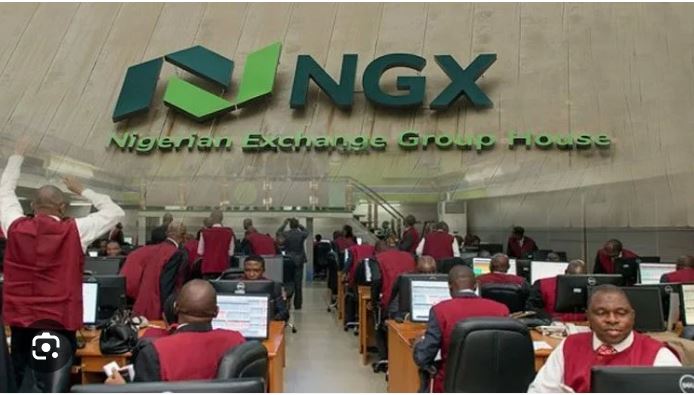A week of intensified trading on Nigeria’s stock market saw transaction values nearly double, reflecting heightened investor activity despite a shortened trading period. Investors exchanged 17.5 billion shares worth N500.76 billion (approximately $336 million) across 142,082 transactions on the Nigerian Exchange (NGX), a sharp rise from the previous week’s N107.81 billion traded. The 78% week-on-week surge in market value coincided with a four-day trading schedule, as Tuesday was declared a public holiday to commemorate former President Muhammadu Buhari.
Financial services firms dominated trading, accounting for over 90% of total volume and 87% of value. Key players First Bank of Nigeria Holding Company (First HoldCo), FCMB Group, and Fidelity Bank collectively traded 13.23 billion shares valued at N367.5 billion, representing three-quarters of weekly turnover. The information and communications technology (ICT) and consumer goods sectors followed, with ICT companies trading N3.49 billion in shares and consumer goods firms exchanging N20.16 billion worth of stock.
Broader market indicators showed sustained bullish momentum. The NGX All-Share Index rose 4.3% to close at 131,585.66, while total market capitalization hit N83.24 trillion ($55.5 billion). Most sectoral indices closed higher, though insurance, oil and gas, and sovereign bond segments saw declines ranging from 0.57% to 9.56%.
Stock performance revealed shifting investor sentiment. While 49 companies posted gains—down from 90 the prior week—the number of losing equities tripled to 54. Materials producer BUA Cement led advancers, climbing 31% to add N29.40 per share, followed by Eunisell Interlinked (32.6%) and Associated Bus Company (28.4%). Conversely, publishing firm Academy Press topped decliners with a N2.25 per share drop, while logistics provider Caverton Offshore and beverage maker Champion Breweries saw losses exceeding 7%.
The shortened trading week’s heightened activity underscores growing confidence in Nigeria’s equity market amid economic reforms, though concentration in financial stocks and diverging sector performances highlight persistent volatility risks. With nearly half of listed equities maintaining stable prices, analysts suggest the mixed trends reflect ongoing portfolio adjustments as investors weigh macroeconomic signals.
